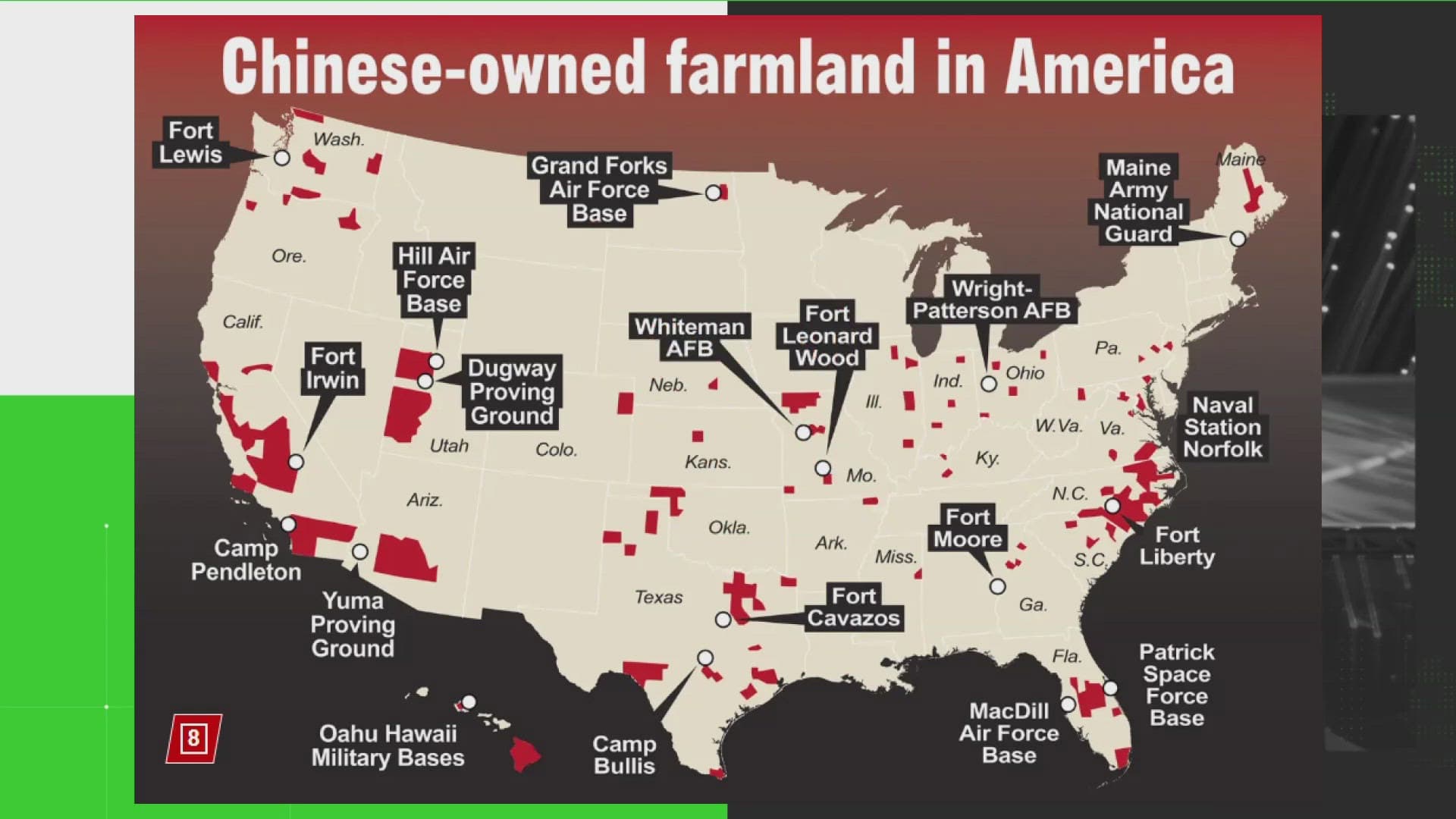U.S. Lawmakers Grapple with Chinese Land Ownership Amidst Reports of Over 340,000 Acres Held by Chinese Investors

Concerns over foreign ownership of U.S. land, particularly by entities with ties to China, continue to escalate, highlighted by a recent social media post from "HUNTSMAN 🇺🇲" referencing a 2024 House Republican Policy Committee (HRPC) map. The tweet underscored perceived gaps in official tracking, claiming the HRPC's map "is missing sites that have been investigated and confirmed as having Chinese ultimate beneficial interest in Florida, South Dakota, Maryland, Arkansas, Alabama, Michigan, and California."
The HRPC's 2024 report, titled "Chinese Communist Party Purchase of American Land," asserts that Chinese Communist Party (CCP) affiliated entities have increased their stake in American farmland 23-fold between 2010 and 2020. While official U.S. Department of Agriculture (USDA) data from 2022 indicates Chinese investors hold approximately 346,915 acres of U.S. agricultural land—less than 1% of all foreign-held agricultural land—the HRPC and other critics argue this figure is likely an underestimate due to reporting loopholes and opaque beneficial ownership structures.
The tweet author, who claims to have "helped identify the North Dakota, Missouri, and Nebraska sites on this map," points to the ongoing challenge of comprehensively cataloging such holdings. This sentiment resonates with broader discussions among lawmakers and national security experts regarding the Agricultural Foreign Investment Disclosure Act (AFIDA) of 1978, which many consider insufficient for current geopolitical realities. Cases like the proposed Fufeng Group corn mill near Grand Forks Air Force Base in North Dakota, which was ultimately halted due to national security concerns, exemplify these anxieties.
Another high-profile instance involved Chinese billionaire Sun Guangxin's acquisition of over 130,000 acres near Laughlin Air Force Base in Texas. Despite initial federal approvals, state legislation was enacted to block the associated wind farm project, reflecting a growing trend of state-level efforts to restrict land purchases by foreign adversaries. As of May 2024, 27 states have considered legislation on this issue, with several, including Indiana, Nebraska, and South Dakota, passing laws to prohibit or limit land ownership by Chinese citizens or entities.
The debate underscores a broader national security concern about potential espionage, critical infrastructure vulnerabilities, and food supply chain control. While critics of restrictive legislation warn against xenophobia and discrimination, proponents emphasize the need for enhanced transparency and stricter regulations to safeguard U.S. interests against foreign influence.